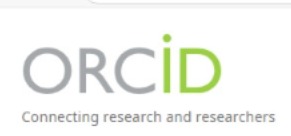The Philosophical Foundations Of Holistic Education In The 21st Century (Challenges And Obstacles To The Development Of Islamic Education)
DOI:
https://doi.org/10.63889/pedagogy.v18i1.305Keywords:
holistic education, philosophy of education, islamic education, educational challenges, curriculum development, islamic valuesAbstract
This article discusses the philosophical foundations of holistic education in the 21st century with a focus on the challenges and obstacles in its development in the context of Islamic education. The background of this research is based on the urgent need for a comprehensive and balanced approach to education in the face of the complexity of modern times marked by technological developments, moral crises, and the fragmentation of science. The GAP of this research lies in the lack of in-depth studies that integrate the holistic paradigm with the values of Islamic education philosophically and applicatively in facing the challenges of globalization and modernization. This research uses a qualitative approach with the library research method, which examines the literature on holistic education philosophy and Islamic educational thought from various primary and secondary sources. The benefit of this research is that it makes a conceptual contribution to the development of a more complete, transformative, and contextual Islamic education paradigm, as well as a reference for policymakers and education practitioners in designing a learning system that is in line with spiritual, intellectual, and social values of the 21st century.
References
[1] S. Anwar and S. Rosyidah, “Development Of Islamic Personality In The Digital Era With A Monotheism-Based Character Education Model,” vol. 17, no. 2, 2024.
[2] Riza Mi’rotul Rohmah; Arba’iyah Yusuf; Rohmatul Azizah; Risyaf Nabiel M, “Peran Pendidikan Holistik Bagi Pengembangan Karakter Anak Usia Dini,” J. Dimens. Pendidik. dan Pembelajaran, vol. 11, no. 1, pp. 154–165, 2023, https://doi.org/10.24269/dpp.v11i1.8268.
[3] Fitria Wulandari, “Konsep Pendidikan Holistik Dalam Membina Karakter Islami,” Sustain., vol. 11, no. 1, pp. 1–14, 2019.
[4] Siti Nur’aini, “Pendidikan Humanisme Dalam Perspektif Islam,” Tamaddun, vol. 17, no. November, p. 1, 2017, https://doi.org/10.30587/tamaddun.v0i0.74.
[5] N. Yuliana, M. D. R, and M. Fahri, “Model Pendidikan Holistik Berbasis Karakter Di Sekolah
Karakter Indonesia Heritage Foundation,” EduHumaniora | J. Pendidik. Dasar Kampus Cibiru, vol. 12, no. 1, pp. 15–24, 2020, https://doi.org/10.17509/eh.v12i1.15872.
[6] A. Syaifulloh, A. Nurhartanto, and M. Munawar, “The Moderate And Multicultural Education In The Synthesis Of Imam Al-Ghazali Thought : A Prospective Analysis Of George R . Knight,” vol. 17, no. 2, 2024.
[7] M. Mahfud, “Mengenal Ontologi, Epistemologi, Aksiologi Dalam Pendidikan Islam,” CENDEKIA J. Stud. Keislam., vol. 4, no. 1, 2018, https://doi.org/10.37348/cendekia.v4i1.58.
[8] M. Mahmudi, “Pendidikan Agama Islam Dan Pendidikan Islam Tinjauan Epistemologi, Isi, Dan Materi,” TA’DIBUNA J. Pendidik. Agama Islam, vol. 2, no. 1, p. 89, 2019, https://doi.org/10.30659/jpai.2.1.89-105.
[9] R. Poloso, “Epistemologi Pendidikan Islam Perspektif Abuddin Nata,” Farabi, vol. 15, no. 2, pp. 82–102, 2018, https://doi.org/10.30603/jf.v15i2.645.
[10] D. S. Azhari and M. Mustapa, “Konsep Pendidikan Islam Menurut Imam Al-Ghazali,” J. Rev. Pendidik. dan Pengajaran, vol. 4, no. 2, pp. 271–278, Nov. 2021, https://doi.org/10.31004/jrpp.v4i2.2865.
[11] S. Anwar, “Integrasi Keilmuan Prespektif M. Amin Abdullah dan Imam Suprayogo,” J. Ilm. Pedagog., vol. 17, no. 1, pp. 142–162, 2021.
[12] S. Anwar, “Pendidikan Karakter Prespektif Islam (Pemikiran Al-Ghazali Dan Ibnu Maskawaih),” J. Pedagog., vol. 21, 2022.
[13] S. U.S, “Arah Pendidikan di Indonesia dalam Tataran Kebijakan dan Implementasi,” Form. J. Ilm. Pendidik. MIPA, vol. 2, no. 2, pp. 111–121, Aug. 2015, https://doi.org/10.30998/formatif.v2i2.92.
[14] M. R. Ramadhan, N. Pohan, and A. F. Nasution, “Model-model Pengembangan Kurikulum di Sekolah,” Yasin, vol. 3, no. 5, pp. 788–799, 2023, https://doi.org/10.58578/yasin.v3i5.1408.
[15] A. S. E. R. H. Rouf;, Muhammad, “Pengembangan Kurikulum Sekolah: Konsep, Model Dan Implementasi,” Engineering, vol. 250, no. 2, pp. 44–47, 2009.
[16] M. Y. Balaka, “Metode penelitian Kuantitatif,” Metodol. Penelit. Pendidik. Kualitatif, vol. 1, p. 130, 2022.
[17] R. Susilana, “Metode Penelitian Sosial Kuantitatif,” J. Vis. Lang. Comput., vol. 11, no. 3, pp. 287–301, 2015.
[18] E. Berlian, Metodologi Penelitian Kualitatif & Kuantitatif, vol. 11, no. 1. 2019, https://doi.org/10.31227/osf.io/aucjd.
[19] P. setya Mustafa, H. Gusdiyanto, and Adif victoria, Metode Penelitian Kuantitatif dan kualitatif. Bandung: Alfabeta, 2020.
[20] P. D. Lapang and I. W. Suyadnya, “Metodologi Penelitian Kualitatif : Berbagi Penyunting :,” p. 48, 2018.
[21] R. Awaliati, “Tantangan Guru Indonesia Pada Abad 21,” Univ. Lambung Mangkurat Banjarmasin, vol. 21, pp. 1–6, 2022, https://doi.org/10.31237/osf.io/3qu7b.
[22] E. Tarihoran, “Guru Dalam Pengajaran Abad 21,” SAPA - J. Kateketik dan Pastor., vol. 4, no. 1, pp. 46–58, May 2019, https://doi.org/10.53544/sapa.v4i1.68.
[23] S. Anwar et al., “Development of the concept of Islamic education to build and improve the personality of school-age children,” Multidiscip. Rev., vol. 7, no. 8, 2024, https://doi.org/10.31893/multirev.2024139.
[24] S. Wulan, “Konsep Pendidikan Multiple Intelligences Dan Relevansinya Terhadap Pendidikan Islam,” J. Educ., vol. 05, no. 03, pp. 7721–7739, 2023.
[25] Nurohman, “Konsep Pendidikan Al-Ghazali Dan Relevansinya Dalam Sistem Pendidikan Di Indonesia,” As-Salam J. Stud. Huk. Islam Pendidik., vol. 9, no. 1, pp. 41–60, Jun. 2020, https://doi.org/10.51226/assalam.v9i1.189.
[26] S. A. Sukisno, “Tinjauan Konsep Prulalis Dan Multikulutral Dalam Pendidikan Agama Islam,” vol. 17, no. April, pp. 118–127, 2024.
[27] M. R. Alfazri, I. Probowati, and H. P. Sari, “Konsep Pendidikan Dalam Perspektif Filsafat Islam
Menurut Pemikiran Al-Farabi dan Relevansinya di Era Moderen,” no. 4, 2024, https://doi.org/10.61132/reflection.v1i4.186.
[28] R. H. Amiruddin Siahaan, Konsep-Konsep Keguruan dalam Pendidikan Islam, vol. 4, no. 1. Lembaga Peduli Pengembangan Pendidikan Indonesia (LPPPI), 2017.
[29] L. Hakim, “Integrated Learning dalam Perspektif Pendidikan Islam,” AT-TURAS J. Stud. Keislam., vol. 4, no. 2, pp. 227–255, Sep. 2018, https://doi.org/10.33650/at-turas.v4i2.334.
[30] A. Mundiri, “Rekontruksi Epistemologi Pendidikan Islam Berbasis Spirit Integralistik,” atturas, J. Stud. Keislam., vol. 1, no. 1, p. 23, 2014.
[31] H. Zahrani, A. Dhobith, and Rubini, “Kajian Teoritis Epistemologi Pendidikan Islam,” AlManar J. Komun. dan Pendidik. Islam, vol. 11, no. 2, pp. 58–68, 2022, https://doi.org/10.36668/jal.v11i2.423.
[32] M. Sakir, “Pendidikan Islam Dalam Sistem Pendidikan Nasional,” Cendekia J. Kependidikan dan Kemasyarakatan, vol. 12, no. 1, p. 103, 2016, https://doi.org/10.21154/cendekia.v12i1.370.
[33] S. Abas and H. Mabrur, “Rekonstruksi Epistemologi Pendidikan Agama Islam,” Eduprof Islam. Educ. J., vol. 4, no. 1, pp. 77–99, 2022.
[34] Ilham Akbar; Mahmud Arif; Januariansyah A, “Aksiologi Pendidikan Islam,” J. Auladuna, vol. 01, no. 02, pp. 63–82, 2019.
[35] Ali Hasan Siswanto and Mukaffan, “Analisis Kritis Aksiologi Pendidikan Nasional Antara
Filsafat Pendidikan Islam Vs Nilai-Nilai Pancasila,” SIRAJUDDIN J. Penelit. dan Kaji. Pendidik. Islam, vol. 2, no. 2, pp. 103–116, 2023, https://doi.org/10.55120/sirajuddin.v2i2.1291.
[36] A. Ahmad, “Konsep Ta’dib Syed Muhammad Naquib Al-Attas dan Implikasinya dalam Pendidikan Islam,” AN NUR J. Stud. Islam, vol. 13, no. 1, pp. 32–50, 2021, https://doi.org/10.37252/an-nur.v13i1.98.
[37] A. Hamid, “Guru Prefesional,” Tawazun J. Pendidik. Islam, vol. 12, no. 1, p. 94, Jun. 2019, https://doi.org/10.32832/tawazun.v12i1.1891.
[38] Y. B. D. M. I. Sipahutar, “Kompetensi Profesional Guru Pendidikan Agama Islam,” J. Basicedu, vol. 5, no. 5, pp. 3(2), 524–532, 2020.
[39] M. LUBIS, “Peran Guru Pada Era Pendidikan 4.0,” EDUKA J. Pendidikan, Hukum, Dan Bisnis, vol. 4, no. 2, pp. 0–5, 2020, https://doi.org/10.32493/eduka.v4i2.4264.
[40] R. Diki Maulansyah, D. Febrianty, and M. Asbari, “Peran Guru dalam Peningkatan Mutu Pendidikan: Penting dan Genting!,” J. Inf. Syst. Manag., vol. 2, no. 5, pp. 31–35, 2023.
[41] S. Anwar, “Kepemimpinan Digital Menghadapi Persaingan Global Di Perguruan Tinggi,” vol. 2.
[42] S. Lestari, “Peran Teknologi dalam Pendidikan di Era Globalisasi,” EDURELIGIA; J. Pendidik. AGAMA Islam, vol. 2, no. 2, pp. 94–100, Aug. 2018, https://doi.org/10.33650/edureligia.v2i2.459.
[43] W. M. B. B. Sinaga and A. Firmansyah, “Perubahan Paradigma Pendidikan di Era Digital,” J. Teknol. Pendidik., vol. 1, no. 4, p. 10, May 2024, https://doi.org/10.47134/jtp.v1i4.492.
[44] M. R. Walukow, H. N. Tambingon, and V. N. J. Rotty, “Pergeseran Paradigma Pembelajaran Informatika di Sekolah,” Pergeseran Paradig. Pembelajaran Inform. di Sekol., vol. 4, no. 5, pp. 5411–5420, 2022.
Downloads
Published
How to Cite
Issue
Section
License
Copyright (c) 2025 Mahmudulhassan Mahmudulhassan, Mariam Elbanna, Muhammad Abuzar

This work is licensed under a Creative Commons Attribution-ShareAlike 4.0 International License.






